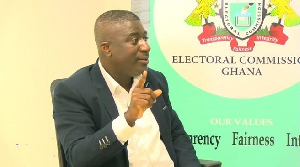The country does not have enough indigenous gas to fuel power plants sited in the Western Region, and will have to augment gas supplied with crude, following the delivery of the AMERI power plants.
Dr. Kwabena Donkor, Power Minister said: “As at today (Friday), we don’t have enough indigenous gas. Indeed, With the AMERI plant coming in, we wouldn’t have enough gas to meet the gas demands in the Western corridor let alone the Tema corridor”.
The Jubilee Oilfield produces about 100,000 barrels of oil per day. The field also crucially produces about 120million standard cubic feet of gas per day (mscf/day) to power thermal plants within the Aboadzi power enclave.
NGas, made up of Chevron, Shell and the Nigerian National Petroleum Corporation (NNPC), is also contracted to supply 120mscf of gas per day via the West African Gas Pipeline. However, supply of the commodity has been below the contractual volume, amid issues of debts owed the suppliers.
This, however, is not enough to cater for the estimated total gas demand of about 350mscf/day needed to generate enough thermal energy to meet the daily 2,200megawatts of electricity demanded at peak.
Gas exported on-shore from the Jubilee Field and processed by the Ghana Gas Company Limited for onward delivery to VRA and other Independent Power Generators in Takoradi represents a crucial source of cheap fuel for the generation of power. At full throttle it supplies about 120million standard cubic feet of gas.
VRA, government and other private entities are working to secure other sources of cheap gas for power generation.
The Volta River Authority (VRA) and four companies -- outside the NGas consortium -- based in Nigeria are in an advanced discussion for the supply of more gas. The four companies are: ND Western, which bought Shell’s asset in Nigeria Gas; Network Oil; Constant Capital; and Sahara Oil. The delay in finalising the gas sales agreement is due largely to the recent political change in the populous West African country.
The Authority has also agreed a long-term deal with Gasol LNG Import Limited for supply of gas. Gasol is expected to receive LNG from Nigeria onto its LNG facility sited in Benin for onward supply to Ghana.
The conditional gas supply agreement the VRA signed with Gasol requires the latter to supply 100 million standard cubic feet of gas per day, providing an alternative gas supply source for the Authority.
Additional gas is expected to be generated from the TEN project. The project derives its name from the three fields -- Tweneboa, Enyera and Ntomme -- and has a current scope to develop 300million barrels of oil equivalent (mmboe) over the lifetime of the field, which is approximately 20 years. Around 80% of this is oil and 20% gas.
It is led by Tullow Oil, with partners Ghana National Petroleum Corporation, Kosmos Energy LLC, Andarko Petroleum and PetroSA. The TEN Project is on track to achieve its first oil by August next year.
The Chief Executive Officer of Tullow Oil plc, Aidan Heavey, in a recent statement said: “The FPSO for TEN is a lot more complicated than that of Jubilee because it has a gas part, and we can expand more efficiently into the gas business. The gas being supplied now is associated gas from the Jubilee Oilfield, and there will be associated gas from the first phase of TEN as well. However, the real gas upside will come on-stream later on”.
“It's when the gas industry starts to build up you get cheap gas through the system, and that then passes down to the homes and businesses and they have cheap power and become more competitive, that the impact will be felt.
“Our attention is focused on TEN (Tweneboa, Enyenra and Ntomme) and Jubilee. TEN is currently one of the biggest projects in the world, and our focus of attention is to make sure it’s on time and on budget,” he said.
Business News of Wednesday, 16 December 2015
Source: B&FT

















